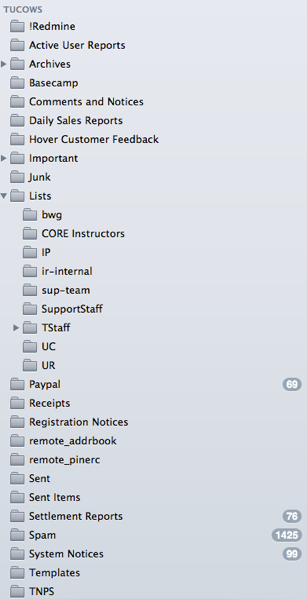I received a lot of feedback on my earlier post advocating for change on the CIRA Board. I thought it might be helpful to followup on a few of them.
First, about my comments on Board diversity. Specifically;
Canada is diverse, vibrant and progressive – CIRA’s Board should reflect this.
Of primary concern to me is the diversity of thought and experience of the people populating CIRA’s Board of Directors. Different people with different backgrounds can bring different thoughts to the table, and collectively these create a tremendous resource the organization can rely on. I’m less concerned with “quotas” as some thought I was advocating for. My point is simply this – CIRA needs a Board of Directors that can add to the discussion and create value for the organization. One of the ways of fostering this is to pay some attention to diversity of thought and experience. That said, I would personally like to see better regional balance on the Board. 6 people from B.C. is too much, especially given that a number of Canadian provinces have *no* presence on the board.
Second, I want to expand my comment about special interest groups.
The outcome of this election should be a Board representative of Canada’s diversity – not a panel of advocates for special interest groups.
I think it is proper for special interest groups to rally around good candidates and push for their election to the Board. What is not right is when these candidates bring their issues to the table and try to push an agenda on the organization. It is easy for inexperienced Board members to forget that they have a primary obligation to the organization that supersedes the interests of the groups that got them elected. During my tenure on the Board I saw many candidates come to the table in exactly this way and the time and energy wasted on pushing back on these conflicts of interest was terrible. The Board should benefit from focus, and that requires each Board member to bring themselves fully to their work and as unencumbered by special interest agenda as possible.
Last, I want to reiterate my remarks about the difference between having a Board seeking to protect and keep versus one focused on growth, innovation and progress.
We need Directors who are hopeful and curious. Any who are motivated by fear of change should be replaced.
The .CA registry and DNS is a national infrastructure asset and its technical operations need be managed conservatively and competently. That does not mean that CIRA’s programs, initiatives and policies cannot be progressive and growth oriented. I would love to see the Board engaged in a strong dialog with Canada’s Internet community about what our possibilities are, how we can grow the pie and create great opportunities for Canadians. This means putting aside the introspection around governance and bylaws and taking up the mantle of engagement, transparency, accountability and real discussion with the Board’s stakeholders. CIRA’s staff is making excellent progress in these areas and I find it amazing that the Board still finds it so difficult.
So again, in this upcoming election – let’s push for real change on the Board. Let’s look for candidates that have a clue about what loving the Internet, serving the public and participating in the work of a Board really means. Let’s add those people to the existing clueful people on the Board and encourage them all to aspire to greater heights.
 Today I made the jump to using Publicize through Jetpack. Jetpack is a set of services provided by Automattic that just make WordPress better. One of those services, Publicize makes it easy to share your site’s posts on several social media networks automatically when you publish a new post.
Today I made the jump to using Publicize through Jetpack. Jetpack is a set of services provided by Automattic that just make WordPress better. One of those services, Publicize makes it easy to share your site’s posts on several social media networks automatically when you publish a new post.



Comments…